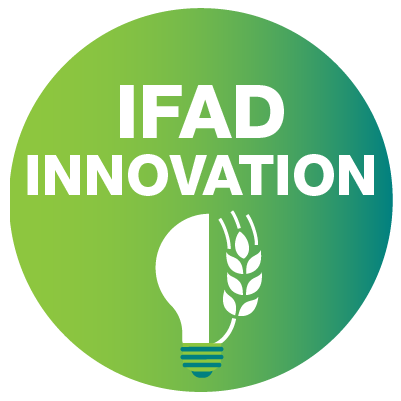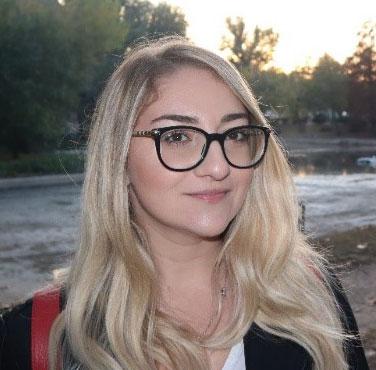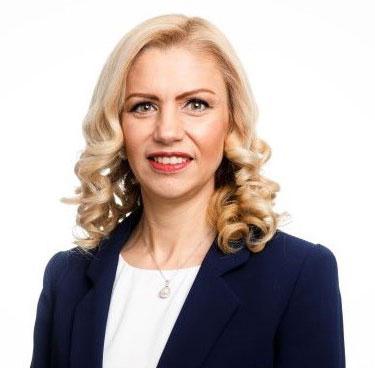Headlines of the Future: Empowering a World Without Hunger by Youth, For Youth
We know that we need to put an end to world hunger, but how do we begin? Although there is enough food to feed everyone, there are still around 700 million people who suffer from famine – a number which continues to rise as a result of environmental threats, such as climate change, pests and conflict, which were amplified by the COVID context.
Eager to help tackle these challenges, the FAO Youth Committee launched a global initiative in 2020 to look for solutions: the World Food Forum (WFF). The WFF is now a global platform led by youth, for youth, where young people can share ideas and knowledge, and inspire one another to make a difference and achieve a world without hunger.
Envisioning a world where hunger is nothing but a faraway memory, IFAD Youth Network (IYN) members were eager to join WFF. With the guidance of the UN Innovation Toolkit, IYN members learned just the right way to contribute to WFF – both by providing innovative ideas to ensure a global reach and to ensure the movement’s longevity.
Thinking about the end result encourages goal-setting and teamwork
The WFF contains six tracks - youth action, innovation labs, education, cooking, film and music - through which the Forum aims to foster a global effort to end hunger. But what makes this forum different? Well, the innovation labs provide a space where youth can participate in challenges, develop ideas, strategize and share knowledge to inspire one another and encourage innovative practices by hosting events such as hackathons, transformative research challenges and masterclasses. Inspired by the UN Innovation Toolkit’s Headlines of the Future, IYN members like myself lead in the development of these masterclasses, which allow youth leaders to come together on the WFF platform to design solutions and overcome the challenges preventing them from achieving Zero Hunger.
Partnerships are great, but how do you secure them?
The WFF encourages the participation of young leaders from all corners of the world. However, finding partners for support can be challenging when targeting a global youth audience. Thanks to UN Innovation Toolkit’s Find Different Partner’s guidelines, identifying non-traditional partners to enhance the Zero Hunger agenda was a simple process. Given the World Food Forum offers six tracks for youth engagement, partners can participate in a variety of sectors and areas, from youth action and assembly, to music, film, education, culinary, and innovation labs.
Creating incentives and opportunities goes hand-in-hand with embracing failures
Encouraged by both the Create Incentives and Opportunities and Embrace Failures tools, innovation masterclasses were put in place to pair long-standing experts with young up-and-coming leaders from different nationalities, to foster more dynamic discussions about their experience and expertise. With topics ranging from urban farming, rural finance, blockchain and youth employment, the masterclasses explore case studies from various countries in panel groups and in breakout discussions. These conversations offer youth partners the opportunity to share their innovative ideas with leaders and to incentivize other partners to implement sustainable agricultural practices. Finally, these classes encourage people to learn from innovation failures. Participants are encouraged to understand and cultivate a culture that accepts mistakes as part of the growing process.
How to host an Innovation Masterclass?
Any young person can host an Innovation masterclass, which is a unique and innovative practice we want to encourage. With the help of the UN Innovation Toolkit’s User-Centered Design Architecture, we developed a guide on how to successfully host masterclasses that cater to youth globally. Although WFF is a global platform, it is important to remember that participants come from different backgrounds and speak different languages. As such, the UN Innovation Toolkit ensures these masterclasses are designed to reflect the ends and desires of all participants, and to incentivizes youth to perform these classes at the local or regional level in their own language.
Clearly, achieving Zero Hunger does not happen after one movement, and will not happen instantaneously. It will require continuous effort and determination to encourage and inspire greater knowledge-sharing. The UN Innovation Toolkit’s guidance, innovative masterclasses, and other WFF events provide the stepping stone to a larger and more long-term movement fueled by our younger generation’s support. We believe that together, we can work towards a Zero Hunger world and create lasting change for the future.

Article image: IFAD image Bank

